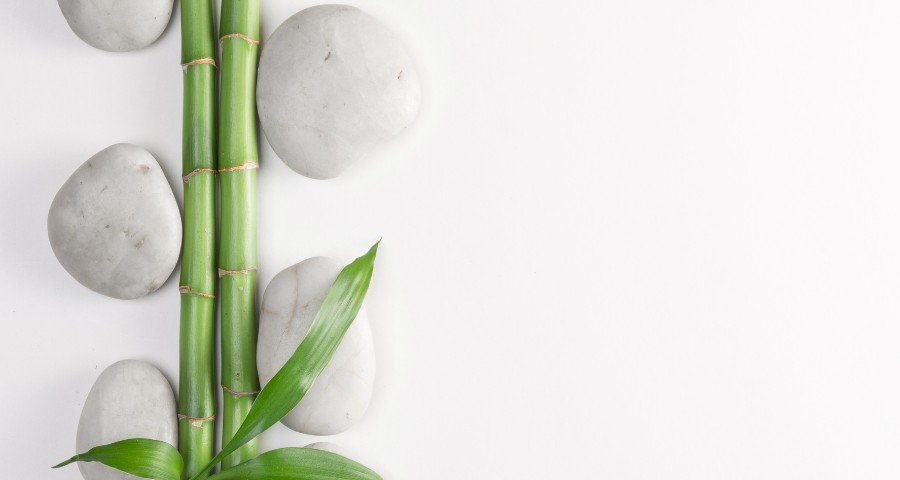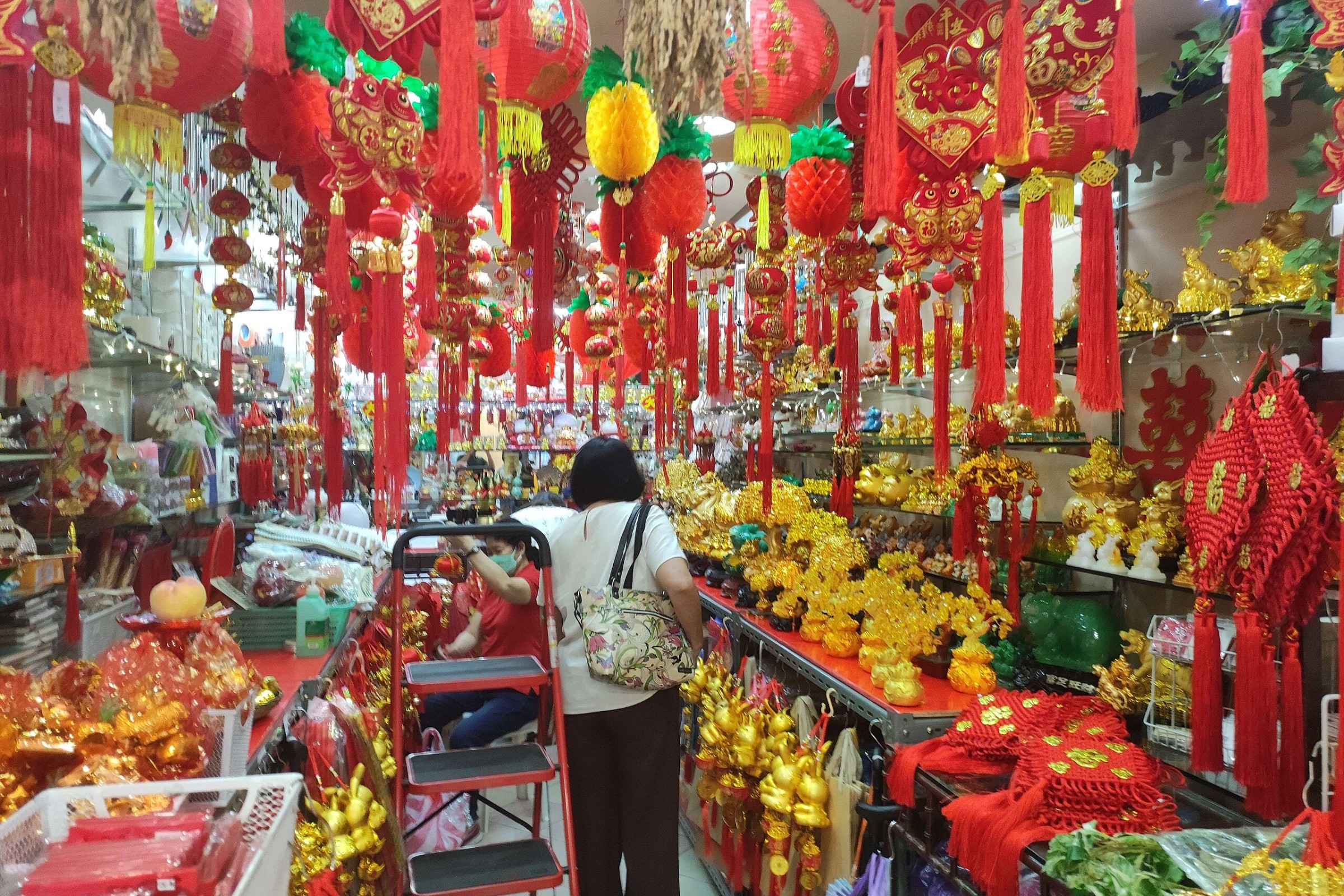Feng shui for homes is all about creating harmonious energy flow, but even well-intentioned houses can harbour hidden pitfalls. Many homes unwittingly collect blocks to chi (life energy) through everyday choices or overlooked clutter.
In this article we’ll look at common Feng Shui mistakes in houses – from misplaced mirrors and clutter to colour and furniture issues – and suggest gentle fixes.
Remember, each home is unique, so these tips may help improve energy flow, but you might adapt them to suit your own circumstances.
Let’s explore some typical energy-draining problems and ways you could correct them.
Clutter and Energy Blockages

Excess Clutter
A cluttered home can trap energy. Experts note that piles of shoes by the door, stuffed cupboards or crowded tables symbolise “blocked or stagnant energy,” hindering positive chi. In practice, too many items (especially at eye level or in the entryway) can create stress and sluggishness in a space.
You could start by decluttering high-traffic areas – for example, keep your front hall well organised. Setting up storage solutions near the entrance (shoe racks, baskets, closed cupboards) may help keep clutter at bay. Regularly sorting through belongings and letting go of things that no longer spark joy might clear space for fresh energy.
Broken or Neglected Items
Broken or “unfinished” objects around the house can also dampen feng shui. Feng Shui advisors warn that worn-out appliances, torn furniture or even a burned-out light bulb can symbolise neglect and “bad energy”.
A broken clock, for instance, is often said to freeze time and opportunities. A gentle remedy is to repair or replace broken items promptly. If something is beyond fixing, consider removing it. Even small improvements — like replacing a dim bulb or fixing a creaking door — may encourage a smoother energy flow.
Dying Plants and Decorations
Living plants represent vitality, whereas wilting or dead ones can convey stagnation or loss. Feng Shui practitioners suggest that houseplants that are sickly or dead “depict abandonment” and should either be revived or composted.
You might bring more life into your space by keeping indoor plants healthy (watering them, pruning dead leaves) or by adding fresh flowers. Similarly, dried flowers, dust-covered decor or old towels could be replaced with vibrant, living elements to boost positive chi.
It’s not about being a perfectionist gardener, but just ensuring the “life” energy of plants and decor remains uplifting, rather than sad or stagnant.
Negative or Monochrome Décor
The images and colours we surround ourselves with affect the home’s vibe. Experts note that dark or violent artwork can “prevent feng shui,” so swapping gloomy pictures for cheerful scenes might invite better energy.
Likewise, overly monochromatic interiors may feel drained of vitality. Feng Shui teaches that each colour corresponds to an element of nature; a room stuck in one shade (say, all white or all grey) might lack balance.
You could try adding small splashes of different colours (through cushions, wall art, plants or fabrics) to symbolise variety — it may help each area feel more vibrant. Even a few colourful accessories or mixed textures can create a sense of harmony and interest.
Clutter is one of the biggest Feng Shui obstacles in a home, as it represents “blocked or stagnant energy”. Removing unnecessary items and staying organised (for example, decluttering the entryway) might improve the energy flow.
Mirrors and Reflections

Bedroom Mirrors
Mirrors can amplify and direct energy, so where you put them matters. A common Feng Shui warning is to avoid a mirror that reflects the bed.
Some schools caution that a mirror facing the bed can disturb sleep by reflecting restless energy, and even metaphorically “invite” extra energies into a relationship. If you have a large wall mirror or closet door opposite the bed, you might try covering it (with a scarf or frosted film) when sleeping, or relocate it if possible.
In some Feng Shui traditions (like BTB), a mirror is used to help a bed “see” the door if the room is oddly shaped, but if a bedroom mirror makes you uneasy, trust your gut and adjust its position.
Mirrors Facing Doors
Placing a mirror directly across from the front door is often cited as a no-no in classical Feng Shui, because it can symbolically “push” good energy back outside rather than welcoming it in.
However, opinions vary: some designers use a mirror to visually enlarge a cramped entry. The safest approach is to avoid a head-on reflection of the open door. If a mirror is naturally on the door’s opposite wall, you could angle it slightly or move it to a side wall (perpendicular to the door).
An expert suggests that hanging a mirror to one side of the entrance – not directly in front of it – will stop chi from racing straight back out. If the placement bothers you, try relocating the mirror, or adding an intervening element like a plant or console table to block the direct reflection.
Kitchen and Dining
While less urgent, Feng Shui also has guidelines about mirrors in eating areas. Many feng shui consultants advise against mirrors facing the stove, because they symbolically double the fire energy and may lead to imbalance.
In practice, if you have a mirrored backsplash behind a cooker, you might want to rethink that – or at least ensure the kitchen remains clean and spacious so the mirror doesn’t feel overwhelming.
Conversely, placing a mirror on a dining room wall can symbolically “reflect” abundance and widen the space, so a side-wall mirror in dining areas is usually fine or even encouraged.
Furniture Layout and Room Flow

Bed and Commanding Position
The bed’s placement is crucial in Feng Shui because it represents you and how you rest. Most schools agree that the bed should not be directly aligned with the bedroom door – a layout dubbed the “coffin position” – because it can feel vulnerable or disrupt sleep.
In this position, your feet (or head) point at the door, which is thought to drain energy as you sleep. If possible, arrange the bed so you can see the door from bed, but are not directly in line with it. Being in the “commanding position” (viewing the room’s entrance) is considered ideal. If space constraints force you to keep the bed facing the door, simple cures could help.
For instance, placing a footboard or a sturdy chest at the foot of the bed can act as a buffer to incoming energy. Some people also hang a crystal ball between bed and door to slow chi. In any case, repositioning the bed—even by a small shift—might significantly improve the sense of security and flow in the room.
Sofa and Seating Arrangement
In living areas, the same principle applies: try to orient sofas and chairs so people can see the door without their backs to it. Also, avoid pushing all furniture right into corners or against the walls if it feels cramped. Instead, aim for a balanced layout.
Large sofas or cabinets that “box in” a room may block the energetic flow. If a piece of furniture is too big for the space, it can overwhelm the room’s balance. One expert advises choosing appropriately scaled pieces for each room because “furniture that’s too big for your space” will make the atmosphere feel “off”.
You may find that exchanging one oversized sofa for a smaller one, or floating furniture slightly into the room, helps restore harmony and openness.
Sharp Corners and Feng Shui
Furniture or decor with pointed corners can be subtly unsettling. Feng Shui folklore calls these pointy edges “poison arrows” or sha qi that cut through the gentle flow of a space. It’s said our minds instinctively sense sharp corners as threatening.
For better harmony, you could soften such edges: for example, drape a table corner with cloth, place a book or plant to “bridge” the corner, or invest in round-edged tables and couches. Even using round area rugs or cushions can visually neutralise sharp angles.
In modern homes, the trend towards curved furniture partly reflects this principle: round shapes are thought to let energy “flow more easily” and feel more nurturing.
Under-Bed Storage
Feng Shui also recommends keeping the space under your bed clear. Using under-bed storage boxes or piling things underneath can symbolically block the smooth circulation of energy in the bedroom.
Experts advise that your bedroom, especially under the bed, should be “absolutely clean and free” so energy can circulate freely. If you need storage, consider alternate places (wardrobes, dressers) or at least use shallow baskets so nothing physically touches the mattress.
Think of a clear under-bed area as allowing fresh airflow for your dreams.
An uncluttered, airy bedroom layout helps chi flow freely. Ideally, place the bed so you can see the door (the “commanding position”), and avoid having the bed directly in line with the door. Small shifts in furniture placement or adding a footboard might improve sleep energy.
Doors, Entrances, and Flow

Front Door Visibility and Condition
In Feng Shui the front door is called the mouth of qi, so its condition matters a lot. A door that sticks, squeaks or is blocked by clutter can impede energy coming in.
Ensure all exterior doors (especially the front entrance) are in good repair – oil hinges, fix locks, paint or clean the door as needed. Likewise, check that nothing obstructs the door’s swing: a coat rack, pile of shoes or junk mail can all block healthy chi.
You may keep a tidy entryway, clear of debris and with a wide opening (doors ideally open at least 90 degrees) so energy can flow freely.
Feng Shui coaches often emphasise that small maintenance tasks – like fixing a loose door handle or clearing out the front porch – are simple fixes that could bring big feng shui benefits.
Hidden or Obscured Door
A subtler issue is if the front door is hard to see from the street. Feng Shui lore says a hidden front door means missed opportunities, because luck and good qi may not find its way in.
If landscaping, fences or walls hide your door, consider trimming bushes, adding a bright welcome mat or even a small sign/house number to make the entrance more visible. Painting the door a bold colour (traditional reds or vibrant hues are popular in feng shui) may also symbolically “attract” energy.
These actions aren’t magic fixes, but they might psychologically reinforce a positive, welcoming entrance.
Front-to-Back Door Alignment
When a house has front and back doors directly aligned, energy can rush straight through and out, giving poor flow. If your hallways or a vestibule line up perfectly front-to-back, you could interrupt the path.
Solutions include placing a narrow console table, a decorative screen or indoor plant halfway between the doors. This small barrier slows and disperses the chi, letting it circulate instead of blasting straight out.
In effect, you create a gentle “curve” in the energy path. Some people also hang crystals or mobiles in the mid-zone to scatter incoming energy.
Narrow Hallways and Entryways
Long, narrow corridors can feel like funnel channels. Feng Shui wisdom suggests that tightly rushed energy isn’t ideal. In a narrow hallway, try introducing points of interest to encourage chi to pause.
For instance, you could hang artwork, place a small chair or decorative table partway down, or add lighting to each end. An expert advises turning narrow entries into a “grand statement” – be bold with colour or décor so the energy circulates rather than zooms through.
Bold paint on one wall or a gallery of pictures can visually widen the space and slow the flow.
Decor, Colour, and Natural Elements

Colour and Light Balance
Feng Shui isn’t just about furniture; it also speaks to the ambience.
Ensure rooms are well-lit and avoid overly dark corners. Natural light is especially valued – open curtains when possible and keep windows clean so sunlight can energise your home.
If a room has very little natural light, supplement it with warm lamps or uplighting. Too little light can make an area feel “stuck” or depressing.
Colour Harmony
As mentioned, using only one colour can starve a room of elemental balance.
For example, an all-black or all-white room may look chic, but Feng Shui suggests incorporating the five natural elements via colour (wood=green, fire=red/orange, earth=beige/yellow, metal=white/grey, water=blue/black).
You might consider adding accessories – cushions, artwork or even a plant – in colours that fill any gaps. Even something like a green houseplant (for the wood element) or a small red ornament (for fire) can symbolically complete the palette.
Decorative Symbolism
Besides pictures, other decor items can carry meaning. For instance, broken or damaged décor (a cracked vase, chipped statue) should be repaired or retired, just like broken furniture.
Avoid keeping emblems from hard times (old bills, negative memorabilia), as Feng Shui says these hold lingering “negative energy”. It’s wise to choose cheerful artwork and meaningful ornaments instead.
Remember that your home reflects your inner state, so surround yourself with items that bring you joy, peace or inspiration – not sadness or anger.
Water Features and Bathrooms
One often-cited tip (though with some debate) is to keep the toilet lid closed and bathroom door shut when not in use.
Bathrooms can symbolise drains in Feng Shui, literally flushing away energy. By keeping the lid down and the door closed, you symbolically stop wealth (and qi) from pouring out of your house. Similarly, make sure showers and taps aren’t left dripping, and that any bathroom odours are well-ventilated – these small fixes are like applying Feng Shui basics of neatness and respect for each space.
In your kitchen, too, try to keep the stove and sink areas clean, as these “wealth” and “health” zones benefit from clear, bright energy.
Healthy Plants
Finally, natural elements are a key Feng Shui boost. Bringing greenery inside (healthy potted plants, fresh flowers, even a vase of bamboo) can improve chi by adding life.
Just be mindful to avoid sharp-leafed or “spiky” plants in high-traffic areas (cacti can feel aggressive). If you must keep a plant in a bedroom, choose gentle, non-flowering types like a peace lily or snake plant.
The earlier point about dying plants applies here: when a plant starts wilting, it’s best to nurse it or let it go. Even a withered houseplant at home can subtly drain the feel of a space.
Living plants and natural elements infuse a home with vitality. Healthy green plants can symbolise growth and positivity. By contrast, dead or wilting plants suggest neglect, so Feng Shui advice is to either revive or remove them. Replacing a dried-out houseplant with a fresh one may improve your home’s energy.
Final Thoughts

In summary, minor adjustments can “tune up” your home’s feng shui. None of these suggestions are ironclad rules, but thinking in terms of energy flow can help.
For each mistake above, there are simple remedies you could try: decluttering to free up chi, rearranging furniture to improve balance, fixing broken items, and choosing harmonious colours or decor.
By treating your home with care and mindful intention, you encourage a space that fosters harmony and well-being.
After all, Feng Shui reminds us that our environment reflects our inner world – so making these gentle tweaks may help your home nurture you in return.
Have a question for us?
We welcome any question with no commitments. Master Louis Cheung will seek to clarify any doubts you may have.
“Master Louis Cheung has an approachable and comfortable personality along with competent skills. I can confidently recommend Master Louis Cheung to my friends. Thank you, Feng Shui Master Louis Cheung.”
 James H.
James H.Senior Financial Analyst







